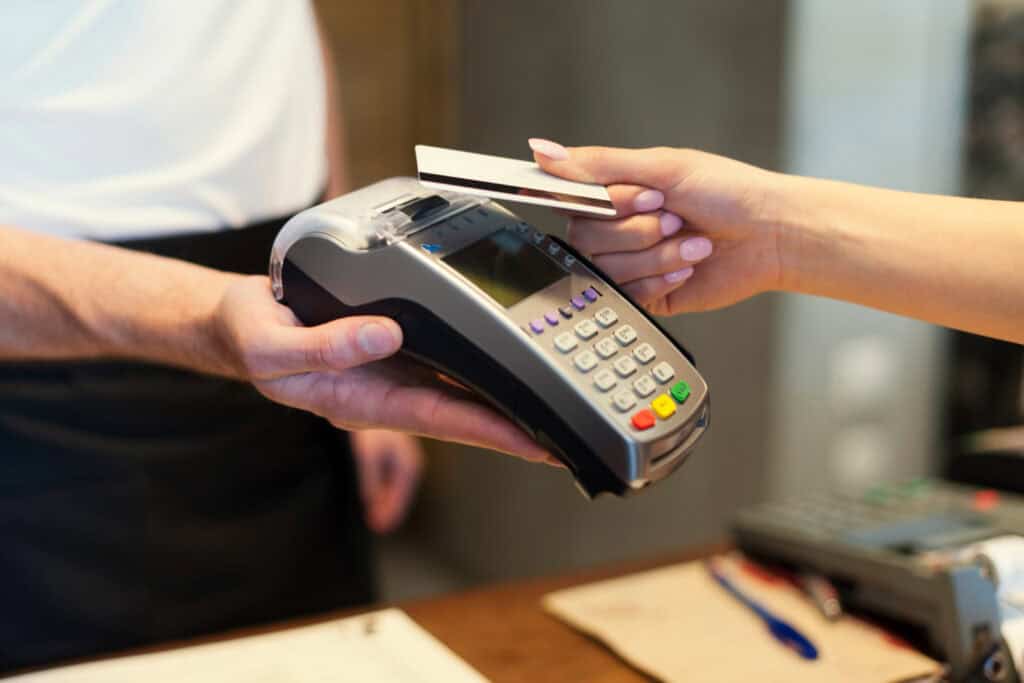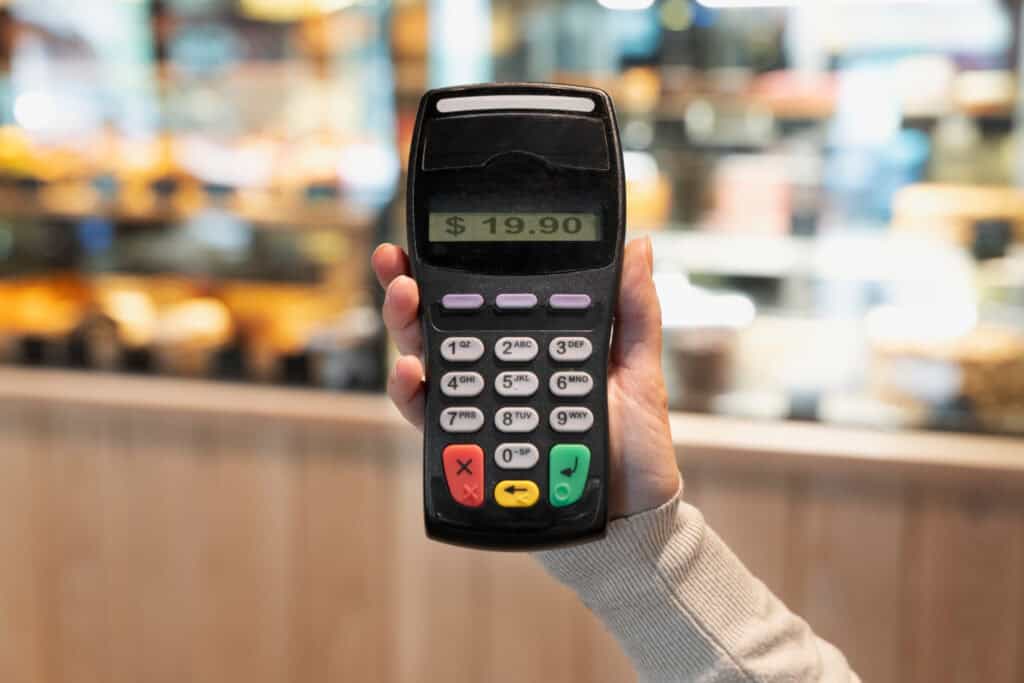
By Sung Moore May 15, 2025
POS and Terminal Running a marina is not like running a traditional retail business. Between the tide schedules, transient customers, diverse services, and seasonal spikes in traffic, marina-based businesses operate in a unique environment that calls for specialized tools and systems. One of the most critical pieces of technology for any marina is a reliable and flexible point-of-sale (POS) and terminal system.
The right POS system is more than just a way to accept payments. It helps manage customer accounts, track fuel and dock sales, handle service bookings, process recurring payments, and keep all transactions organized. Understanding the specific POS and terminal needs of marina businesses is essential for improving operations, delivering better customer service, and growing revenue.
Why Marinas Need a Specialized POS Approach
Unlike stores or restaurants, marinas are multipurpose facilities. They may include retail shops, fueling stations, boat repair services, transient dockage, long-term slip rentals, event hosting, and more. Each of these activities involves different billing methods and customer expectations.
Customers at a marina can range from daily visitors fueling up for a few hours to yacht owners who dock for the entire season. There are also tenants, crew members, tour operators, and vendors involved in day-to-day operations. This complexity makes it difficult to rely on a one-size-fits-all POS solution.
A marina-specific POS system needs to accommodate this variety while simplifying how services are billed, tracked, and reported. It must be able to handle dockage charges, collect fuel payments, apply taxes or service fees, and manage long-term client accounts without requiring staff to switch between multiple platforms.
Core POS Features Needed for Marina Operations
To meet the daily demands of marina business, a POS system should include features that address both customer-facing and backend requirements. These are some of the essential capabilities every marina should consider:
Multi-location and Multi-service Support
A marina often operates several revenue centers. There may be a fuel dock, a pro shop, a maintenance shed, and a restaurant, all under the same management. The POS system should allow each area to operate independently while feeding into a central dashboard for unified reporting and oversight.
This helps marina managers see total revenue at a glance while also tracking each segment of the business in detail. Staff in different areas should be able to operate the system without affecting the performance of others.
Customer Account Management
Recurring customers should have the option to create profiles within the system. These profiles can store boat details, service history, payment preferences, and billing frequency. For seasonal or long-term slip holders, this feature saves time by avoiding repeated data entry and simplifies monthly or quarterly billing.
Account management tools also make it easier to offer loyalty programs, send updates, and track client activity over time. This builds stronger relationships and creates personalized service opportunities.
Integrated Fuel Sales
Fuel docks are one of the busiest and most critical components of any marina. A POS system should include modules that integrate directly with fuel pumps to monitor gallons dispensed, calculate costs in real time, and apply taxes or marina-specific surcharges.
In many cases, mobile terminals or tablets can be used on the dock to speed up transactions, reduce line-ups, and keep boats moving efficiently. This is particularly important during peak boating seasons when fuel demand surges.
Flexible Payment Options
Marina customers expect the same convenience they experience in other parts of their lives. This includes the ability to pay by credit card, debit card, mobile wallet, and even contactless tap-to-pay systems. The POS should support all of these methods seamlessly.
Many marinas also benefit from offering prepayment, split billing, or invoicing options, especially for larger charter operations or yacht services. A good POS system will accommodate these variations without creating extra steps for staff.
Real-Time Inventory Tracking
Retail shops and parts counters need inventory management built into the POS system. This feature tracks what items are sold, when they need to be restocked, and how pricing changes affect profitability.
Having inventory linked to sales allows marina managers to better understand purchasing trends and reduce waste or overstock. It also simplifies ordering processes and helps prevent lost sales due to out-of-stock items.

The Role of Mobile and Wireless Terminals
Marinas are sprawling, open-air environments. Transactions do not always happen at a checkout counter. In fact, most customers want to pay at the dock, at the fuel station, or even from their boat. This makes mobile and wireless terminals essential for a smooth operation.
Mobile terminals are handheld devices or card readers connected to tablets or smartphones. They enable staff to process payments anywhere on the property. This increases efficiency, reduces lines at centralized stations, and allows staff to meet customers where they are.
Wireless terminals can also support tips, print receipts, and connect to back-end systems for syncing with customer accounts. They are ideal for fuel dock workers, boat valets, or transient slip staff who need to move around constantly.
Having portable POS solutions eliminates the bottlenecks of fixed payment stations and creates a better customer experience by offering speed and convenience.
Managing Seasonal Traffic with Scalable Systems
Marinas are highly seasonal. During peak boating months, traffic can triple, and the number of daily transactions grows significantly. A POS system must be able to scale to match these demands without slowing down or becoming unreliable.
Cloud-based POS platforms offer this scalability. They can handle increased volume without crashing, sync data across multiple devices, and automatically back up information in real time. This helps staff stay on top of transactions even during the busiest times of the year.
Temporary or part-time staff can be given limited access to the system, with user permissions set based on roles. This makes training easier and ensures that sensitive financial or customer data is only accessed by authorized personnel.

Integrating POS with Marina Management Software
The most effective POS systems are those that integrate with marina management software. When payments, services, bookings, and customer information are linked in one platform, operations become more streamlined.
This integration eliminates double data entry, reduces errors, and makes it easier to manage customer accounts. For example, when a customer pays for a slip rental, the system can automatically update their profile, generate an invoice, and apply the payment to the correct ledger.
Marina managers can also use integrated reporting tools to monitor performance across services, forecast revenue, and plan for maintenance, staffing, or inventory needs. This creates a more proactive and informed approach to managing the business.
Security and Compliance in Payment Processing
Security is a critical concern for any business accepting card payments. Marinas are no exception. A modern POS and terminal system should meet all current payment security standards, including PCI DSS compliance.
Encryption and tokenization protect customer data during transmission and storage, reducing the risk of breaches or fraud. For marinas that store payment information for recurring billing, this is especially important.
Systems should also include features like password protection, employee activity logs, and secure cloud storage. These safeguards protect the business and help build customer trust, especially among those using high-value services.
Reporting and Analytics for Smarter Operations
A good POS system does more than just process payments. It should also provide insight into how the business is performing. Reporting tools allow marina managers to track daily sales, monitor service categories, evaluate staff productivity, and identify trends over time.
This data helps with decision-making. For instance, if fuel sales spike on certain days or retail items sell out quickly, managers can adjust staffing or inventory accordingly. Reports can also highlight underperforming services or areas where operational changes are needed.
Analytics tools that break down revenue by customer type, payment method, or time of year offer a clearer view of business health and help marinas adapt their strategy based on real-world data.
Choosing the Right POS Vendor for a Marina Business
Not all POS providers understand the specific needs of marinas. When selecting a vendor, it is important to choose one that offers marina-specific features and understands the industry’s operational challenges.
Look for providers that offer flexible hardware options, seamless integrations, and responsive customer support. Ask whether the system supports mobile terminals, recurring billing, and multi-service operations.
It is also helpful to request a demo or trial period to test the system in a real-world setting. Involve key staff in the process to ensure the interface is intuitive and suitable for different roles.
Vendor reliability is critical. Choose a provider with a strong track record, ongoing updates, and the ability to scale with your business as it grows or diversifies.
Preparing for the Future of Payments
The future of POS in marina environments will continue to evolve. Features like digital wallets, QR code payments, remote check-in, and customer-facing apps are becoming more common. Offering these tools can improve convenience and meet rising expectations from tech-savvy boaters.
As more customers prioritize contactless, paperless, and mobile-first experiences, marinas that invest in forward-thinking POS systems will gain a competitive edge. By modernizing payment processing and integrating it with broader business functions, marinas can stay agile, responsive, and profitable year-round.

Also Read: How Marinas Can Streamline Operations with Modern Payment Solutions
Conclusion
Marina-based businesses face a unique set of challenges, from seasonal volume changes to multi-service billing needs. A modern, flexible, and well-integrated POS system is essential for managing these complexities while delivering a seamless experience to both seasonal and year-round customers.
The right POS solution helps marinas simplify payments, track inventory, manage customer accounts, and gain valuable insights into operations. When paired with mobile terminals and secure cloud-based tools, it empowers staff, improves service speed, and boosts overall efficiency.
Understanding POS and terminal needs is not just about technology. It is about creating a better experience for customers, reducing manual work for staff, and positioning the marina for long-term success in an increasingly digital world. By choosing systems that are built for the unique demands of marina life, businesses can sail smoothly into a smarter, more connected future.